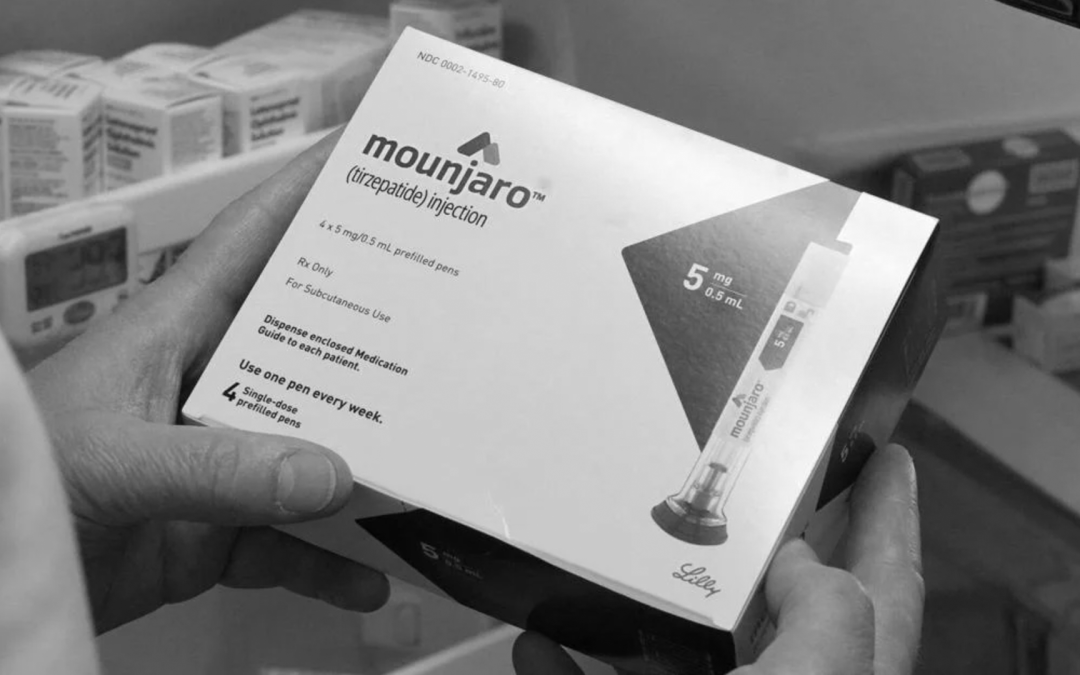In a recent real-world study comparing the weight-loss effects of Mounjaro and Ozempic, the results showcased a significant advantage for Mounjaro, a medication used to treat type 2 diabetes. Both drugs, Mounjaro (tirzepatide) and Ozempic (semaglutide), operate by mimicking the effects of the gut hormone GLP-1, stimulating insulin production, and controlling appetite.
Mimicking the Gut Hormone: A Weight-Loss Strategy
The study, initiated by Truveta, a data analytics company owned by 30 US health care systems, analyzed the records of over 18,000 individuals between May 2022 and September 2023. Approximately 52% of the participants had type 2 diabetes, while the remaining 48% likely used these medications off-label for weight loss.
Real-World Observations Align with Clinical Trials
The findings echoed results observed in clinical trials, indicating that Mounjaro may be more potent in inducing weight loss than its counterpart, Ozempic. The drugs, despite being primarily prescribed for diabetes, have gained popularity due to their potential for significant weight reduction.
Dr. Patricia Rodriguez, the lead study author and a senior applied scientist at Truveta Research, emphasized the potential impact of these medications in a country where over 70% of adults are overweight or obese. The lack of information regarding the real-world efficacy of these drugs prompted the study.
Study Limitations and Off-Label Usage
It’s essential to note that the study focused on the doses approved for treating type 2 diabetes rather than the higher doses approved for weight loss (Zepbound and Wegovy). The records suggested that individuals continued taking the medications for longer durations experienced more weight loss. However, approximately half of the participants discontinued the drugs during the study period, potentially due to shortages.
Side Effects and Commonalities
Both medications exhibited similar side effects, with nausea and vomiting reported for about 1 in 5 individuals and gallstones for roughly 1 in 6. The study did not identify significant differences in adverse events between Mounjaro and Ozempic.
Mounjaro’s Edge in Weight Loss
The study revealed that individuals, with or without diabetes, experienced greater weight loss with Mounjaro compared to Ozempic. At three months, the average weight loss on Mounjaro was 6%, compared to nearly 4% on Ozempic. The trend continued, with Mounjaro users losing 15% of their body weight at 12 months, compared to 8% on Ozempic.
Individualized Approach to Medication
Dr. Mopelola Adeyemo, a specialist in treating diabetes and obesity, emphasizes the individualized nature of weight loss medications. While the study’s results align with clinical trials, the choice between Mounjaro and Ozempic should be based on individual tolerances and responses.
Pharmaceutical Responses to the Study
Novo Nordisk, the company behind Ozempic and Wegovy, challenges the study’s fairness, highlighting the lack of investigation into the doses evaluated for chronic weight management. Eli Lilly, the maker of Mounjaro and Zepbound, disapproves of off-label use and suggests patience as they await results from a head-to-head trial comparing tirzepatide and semaglutide.
In conclusion, the study provides valuable insights into the real-world effectiveness of Mounjaro and Ozempic for weight loss. As the pharmaceutical companies navigate the complexities of dosage and applications, individuals seeking weight loss solutions may find guidance in the experiences shared by those who participated in this groundbreaking study.

Erin Balsa is a highly skilled and knowledgeable health journalist with a passion for educating the public on important health and wellness topics. With extensive experience in both traditional and digital media, Erin has established herself as a trusted voice in the field.

